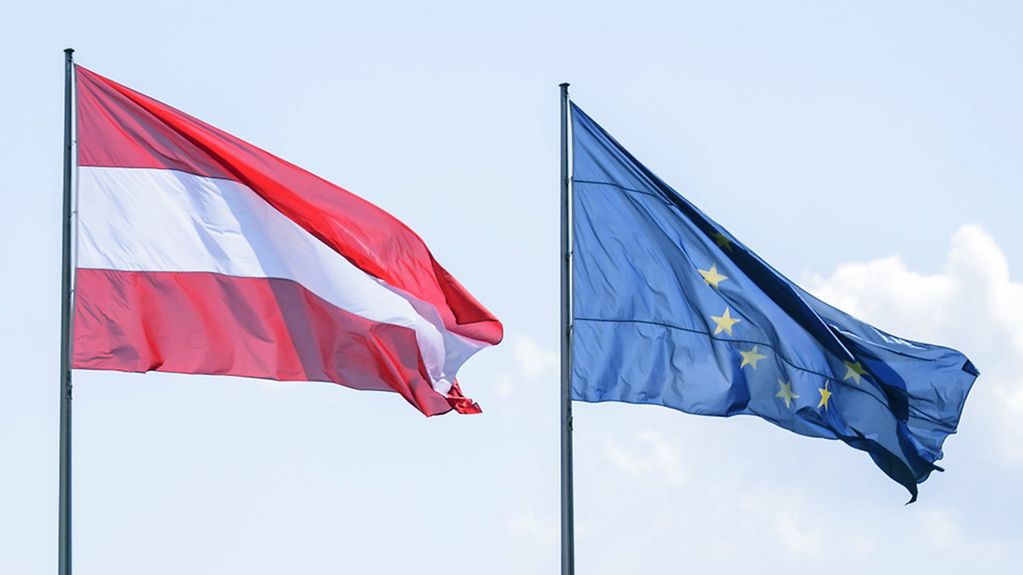Change on 1 July
On 1 July, Austria takes over the Presidency of the Council of the European Union. In the next six months, the country will put the following topics in focus: security and migration, securing competitiveness through digitalisation, and stability in the neighbourhood.
1 min reading time

Presidency of the Council of the European Union, flag, banner, flags The motto of the Austrian Presidency is "A Europe that protects".
Photo: Bundesregierung/Güngör
The motto of the Austrian Presidency is "A Europe that protects". Under this principle, the confidence of the citizens should be boosted in a European Union which guarantees security and peace. To achieve this aim, Austria wishes to strengthen the principle of subsidiarity: the EU should concentrate its efforts on big issues that require a joint solution.
The member states or regions should themselves tackle the issues which they can deal with better.
Priorities for the coming six months
The Austrian Presidency will focus on the protective function of the EU, especially in three priority areas:
• security and migration,
• securing competitiveness through digitalisation, and
• stability in the neighbourhood.
During the second half of the year, the EU will also tackle concluding negotiations on the United Kingdom withdrawing from the EU (Brexit), and the negotiations on the multiannual financial framework after 2020.
Austria is taking over the Presidency of the Council for six months for the third time, after 1998 and 2006.
The Presidency of the Council of the EU rotates every six months among the governments of EU member states. During this period, the incumbent chairs the meetings and conferences at all levels of the Council.
Since 2009, the member states holding the Presidency have worked closely together in groups of three. The so-called trio presidency formulates long-term objectives and develops a joint programme for the Council for 18 months. On the basis of this programme, each of the three countries develops its own, more detailed six-month programme. Austria is now taking over the Presidency of the Council of the EU as the last of its trio, after Estonia and Bulgaria.